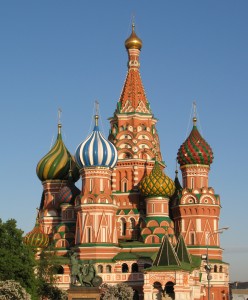- kristalalley@gmail.com
 On September 5-6, Russian President Vladimir Putin will sit down with other G20 leaders in St. Petersburg. The Summit will be held against an economic backdrop of mixed progress and great uncertainty and a geopolitical backdrop of increasing distrust.
On September 5-6, Russian President Vladimir Putin will sit down with other G20 leaders in St. Petersburg. The Summit will be held against an economic backdrop of mixed progress and great uncertainty and a geopolitical backdrop of increasing distrust.
Russia has organized its G20 presidency around three overarching economic priorities: growth through quality jobs and investment, growth through effective regulation, and growth through trust and transparency. It’s the last of these three growth imperatives that stands to suffer most with Russia at the helm.
According to the G20 Research Group at the University of Toronto, trust is already the group’s central challenge. Trust in the economy so business will invest and generate jobs, trust in the financial system, and trust in citizens, companies and politicians to behave in a fair and law-abiding way. I would add trust among the leaders themselves. Without this, there is no reason to believe that G20 promises made are promises kept.
This is where things get sticky for President Putin. Since assuming the Presidency of the G20 the list of issues where Russia and the United States are on distinctly opposite sides has grown. From Syria to Snowden and from banning Americans from adopting Russian children to criminalizing ‘homosexual propaganda’, Putin’s increasing hostility to the West and human rights abuses in his own country could undermine the success of the G20 Summit.
Why is this important? To the extent the G20 can be credited for containing the crisis, it has been decidedly effective in addressing global economic issues. And while the crisis that galvanized the G20’s creation has abated, the world economy remains fragile. There is still work to be done.
Another of Russia’s overarching themes – growth through quality jobs and investment – is a case in point. According to the UN International Labor Organization (ILO), unemployment in the G20 countries remains at ‘unacceptably’ high levels. Over the past 12 months, while unemployment has dropped marginally in about half the G20 economies, it has risen in the other half. From a high of 25% in Spain and South Africa to a low of 3% in South Korea, unemployment across the G20 countries averages about 9%. Further, the ILO points out that among the 93 million unemployed in early 2013, about a third were jobless for over a year.
Effective regulation is the other overarching theme. This primarily refers to the G20’s efforts to strengthen the global financial architecture and change the behavior of financial sector participants. With respect to financial regulations, the U.S. is moving faster than the rest of the world. Even ‘regulation ready’ Europe is opting for less vigorous banking reforms as it continues to struggle with its currency and sovereign debt crisis. According to an August 2013 PwC regulatory brief, “U.S. regulators have indicated that they would sacrifice coordinated efforts and a level playing field for more robust approaches, even if that means going it alone.” A key uncertainty is whether the rest of the world will follow the U.S.’s regulatory drive and how this will impact the G20’s efforts.
Mr. Putin has his job cut out for him. Whether he and the other leaders are able to make decisions in an environment of fundamental personal distrust, agree on policies to battle intransigent joblessness, and manage a go-it-alone attitude by the group’s largest member will certainly impact G20 credibility. At the end of day, we should hope that leaders of the world’s 20 largest economies will remember that while their worst fears may have receded, there is still much to be done.